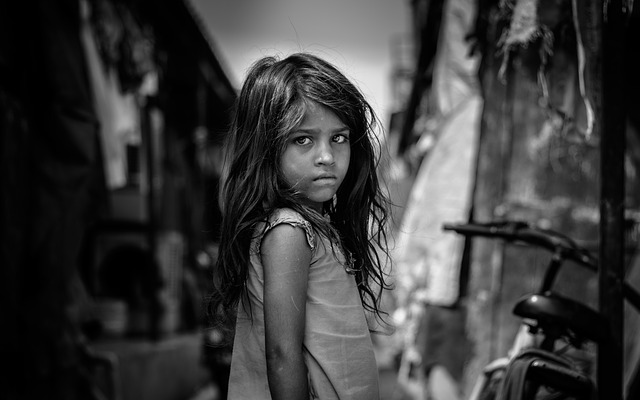
Rich and Poor By Cameron Doolittle
How do we make sure that we do not honor the rich over the poor?
Two Meetings, Two Perspectives
In one week in Jakarta, I had two meetings: one with an Indonesian ministry leader, and one with an American lawyer. One kept asking for a grant and wouldn’t take no for an answer. The other wouldn’t let me give to his work. You may be surprised which was which.
The Indonesian leader pioneers Bible translation across his nation. He requires that Indonesians cover half of the cost of the translations. He believes they will embrace the dignity of generosity, and he has more than enough Western money.
The American lawyer believes God has called him to full-time ministry and to move to one of the world’s most expensive cities to do it. But he refuses to raise support, expecting foundations and wealthy individuals to fund his new life.
The Indonesian leader became a friend, not caring about my proximity to givers or wealth. The American lawyer, sadly, asked me nothing about my story, choosing instead to badger me for hours on why I believed his project might not appeal to givers.
Reducing People to Financial Status
Our own idolatry turns the rich into objects of our fundraising strategies. When I led a disability ministry, I felt this pull to treat the rich differently — as tools to achieve my (God-given?) purposes. After all, I believed, God had called me to run a great ministry. That work required money. The rich had the money, so my job was to get them to give it to my work. The rich were a means to my ends.
Our own idolatry turns the poor into objects of our compassion strategies. At the same disability ministry, I found it hard to accept gifts from the families we served. I saw them as objects of our generosity, rather than participants in generosity. But Jesus and His followers jumble the categories. “Believers in humble circumstances ought to take pride in their high position. But the rich should take pride in their humiliation — since they will pass away like a wild flower” (James 1:9-10).
We often hear that Jesus loved to hang out with the poor. And that’s true. We rarely hear that he also loved to hang out with the rich and influential. But that’s also true (see Matthew 19:16-22; 27:57; Mark 10:17-27; Luke 19:1-10; John 3:1-12; 19:38).
The poor are at physical risk; the rich are at spiritual risk. No one questioned the value of meeting the needs of the marginalized through the disability ministry. But now, at Generosity Path, where I serve global givers, helping free them from materialism and from finding their worth in their wealth, some are skeptical. Why?
The Ways We Dehumanize Each Other
We each see ourselves as multi-dimensional and complicated. We recognize that we can be generous, or greedy; we can be beautifully selfless or spectacularly selfish.
But we tend to see others as simple. We reduce each other to categories — givers to ask for funding, prisoners to serve, poor to feed, politicians to persuade, homeless to house. The rich even dehumanize each other. A friend told me about two billionaires who agreed to meet one another because they were fellow billionaires. Then both were disappointed to learn that the other was not, in fact, even close to being a billionaire.
Scrambling the Categories
Chris Lambert, CEO of Life Remodeled in Detroit, is a hero of mine. He engages inner city neighborhoods in rebuilding their communities. The urban poor set the priorities and organize the project; the suburban rich bring their physical labor, uniting Detroit in a glorious tapestry of service and restoration.
Wealth and poverty are not just lines that divide our cities. They are categories that run through our own hearts. We restore Imago Dei dignity when we press beyond cardboard caricatures.
What if we set about to give something to the financially rich? And learned to receive something from the financially poor? In God’s design, both can give; both can receive. Both have needs; both can supply others’ needs.
What could the poor offer? And what might the rich need?
####
Cameron Doolittle serves with Generosity Path. He also launched Jill’s House, for children with severe special needs; it grew to $6m in revenue and 100+ staff.
 This post is an excerpt from the e-book, Purposeful Living: Financial Wisdom for All of Life.
This post is an excerpt from the e-book, Purposeful Living: Financial Wisdom for All of Life.
As a gift from ChristianSuper, you may DOWNLOAD the entire e-book for FREE.

Feeling weary and not sure how to find the resources to fuel your ministry?
Do you want to learn more about how to connect with major donors and engage them in your ministry?
The Outcomes Conference – April 16-18 in Dallas. Texas is for you!
Register today for premier training event of the year. Come and connect with over 1,000 Christ-centered nonprofit leaders.
Experience the transforming power that is unleashed with leaders invest in each other!
Register Now and Save

What is Christian Leadership Alliance?
Christian Leadership Alliance equips and unites leaders to transform the world for Christ. We are the leaders of Christ-centered organizations who are dedicated to faithful stewardship for greater kingdom impact.
Sign up for FREE blog updates.
Upcoming Events
Check back later!



